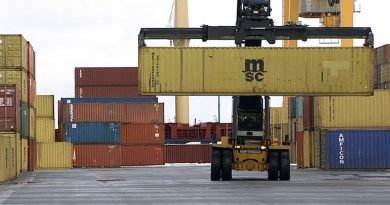Nunavut Inuit Decry Canadian Narwhal Tusk Export Ban
Inuit leaders are accusing the Canadian federal government of banning whalers in most of Nunavut’s communities from exporting their narwhal tusks.
Nunavut Tunngavik Inc., the territory’s Inuit land-claims organization, says the trade restrictions, which were imposed by the federal Department of Fisheries and Oceans, violate Inuit harvesting rights.
In a release Wednesday, Nunavut Tunngavik president Cathy Towtongie called on Ottawa to reverse its decision. Her organization is considering legal options, she added.
“DFO does not have the right to impose such restrictions on Inuit, particularly when the [narwhal] population is thriving and harvest numbers do not threaten the species,” Towtongie stated in the release.
Nunavut Tunngavik says it was notified of the trade restrictions last week.
The group said under the federal order, export permits will not be issued under the Convention on the International Trade in Endangered Species (CITES) for narwhal tusks harvested from 17 of Nunavut’s 25 communities, including the territorial capital of Iqaluit.
Inuit whalers in Kugaaruk, Taloyoak, Gjoa Haven, Igloolik, and Pond Inlet are still permitted to export their harvested narwhal tusks.
“They’ve decided that there are different subpopulations, that some populations may be at risk,” Gabriel Nirlungayuk, Nunavut Tunngavik’s wildlife director, told CBC News.
“We don’t really know what that means. We would like DFO to explain themselves.”
Towtongie and Nirlungayuk said the department based its decision on “faulty scientific data” and no consultation with Inuit.
Nunavut Tunngavik cited scientific surveys that peg the narwhal population at around 80,000 in Canada. Inuit harvest about 500 narwhal each year, the group adds.
The Department of Fisheries and Oceans has not yet commented on the trade restrictions being alleged by the Inuit group.



